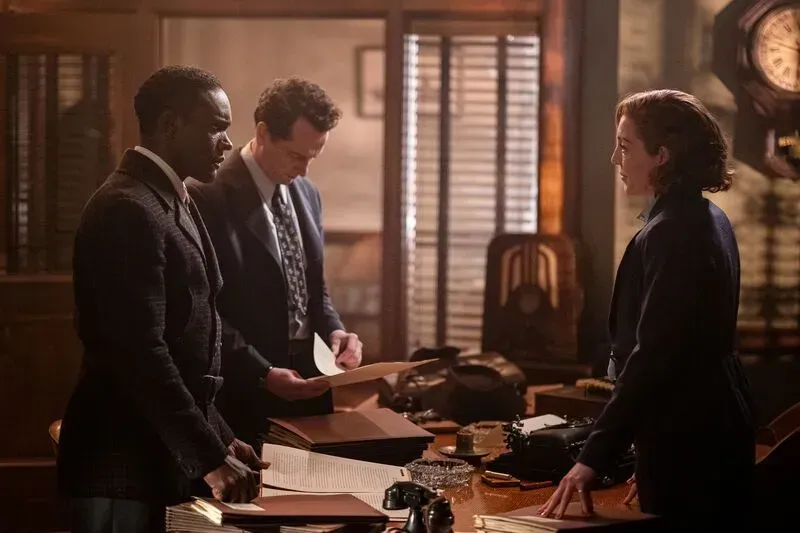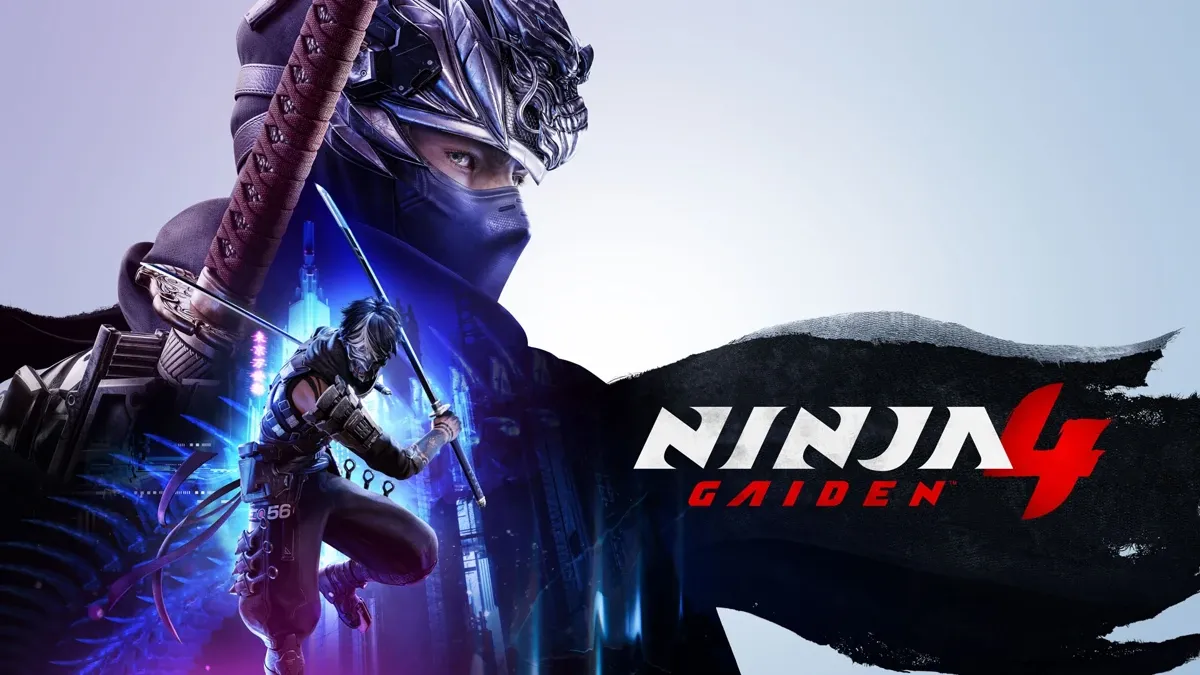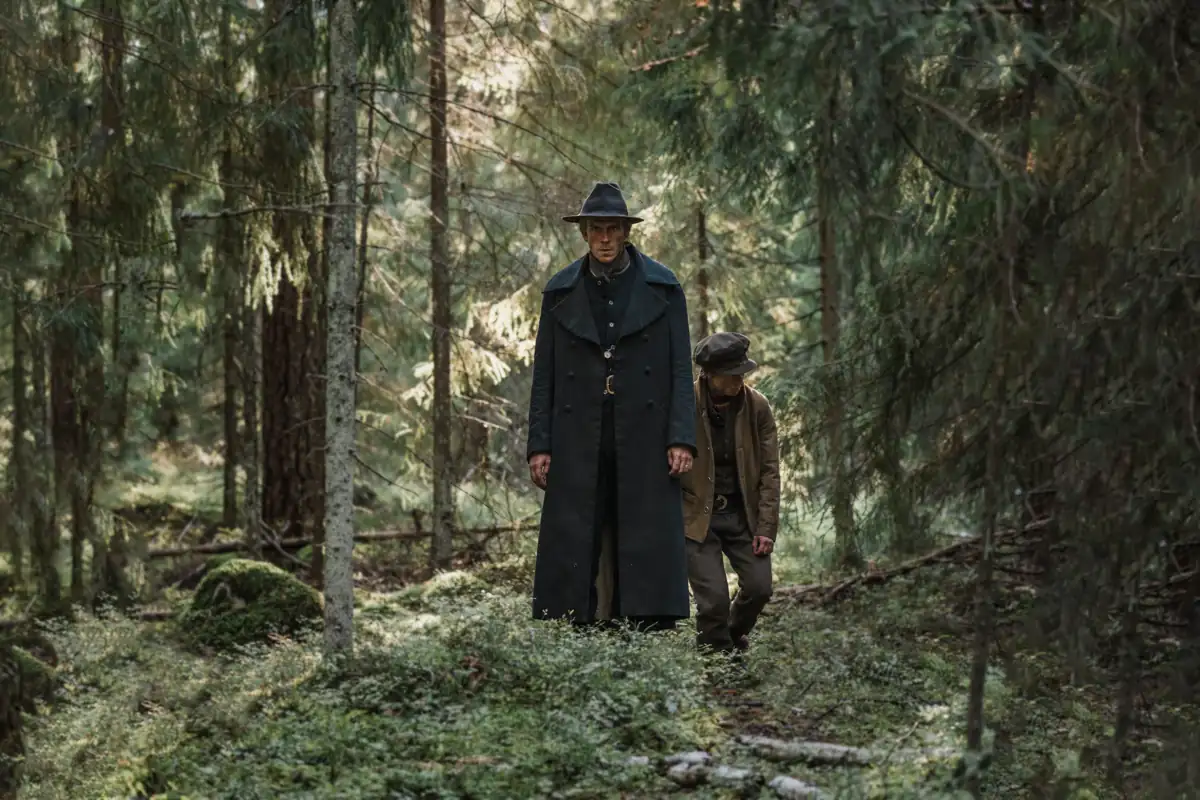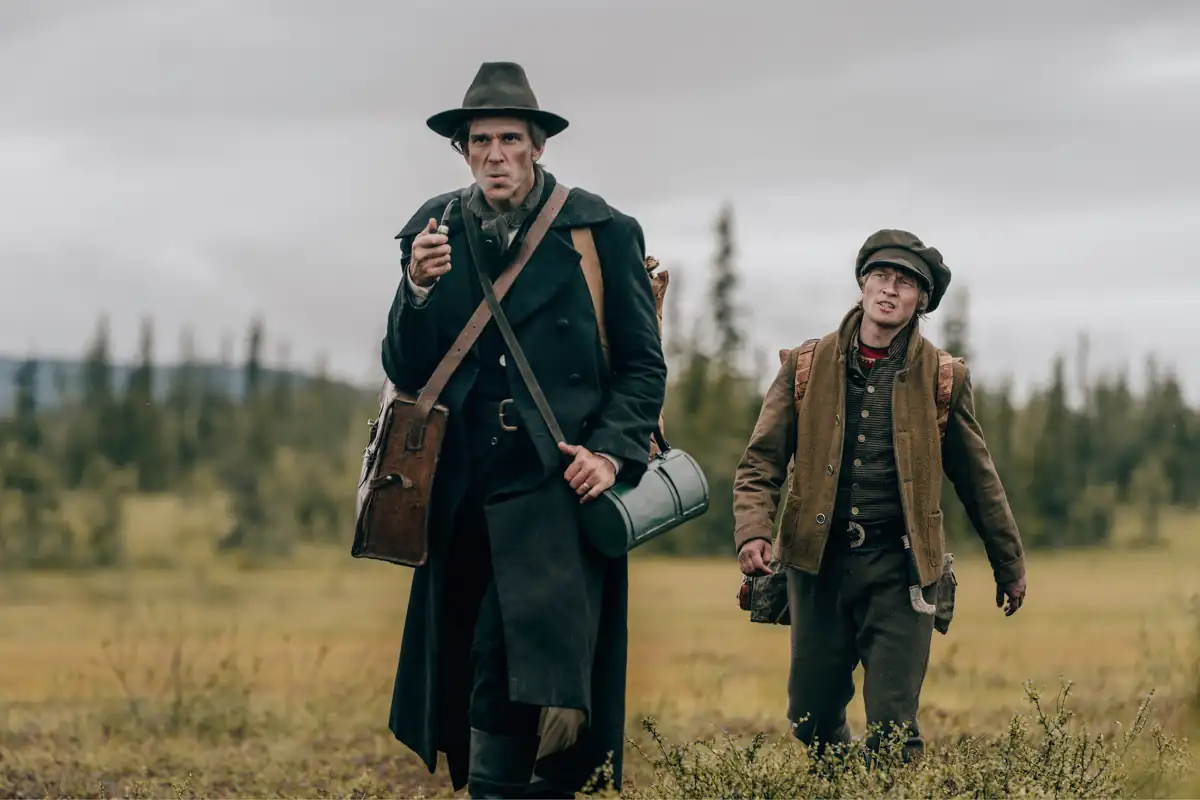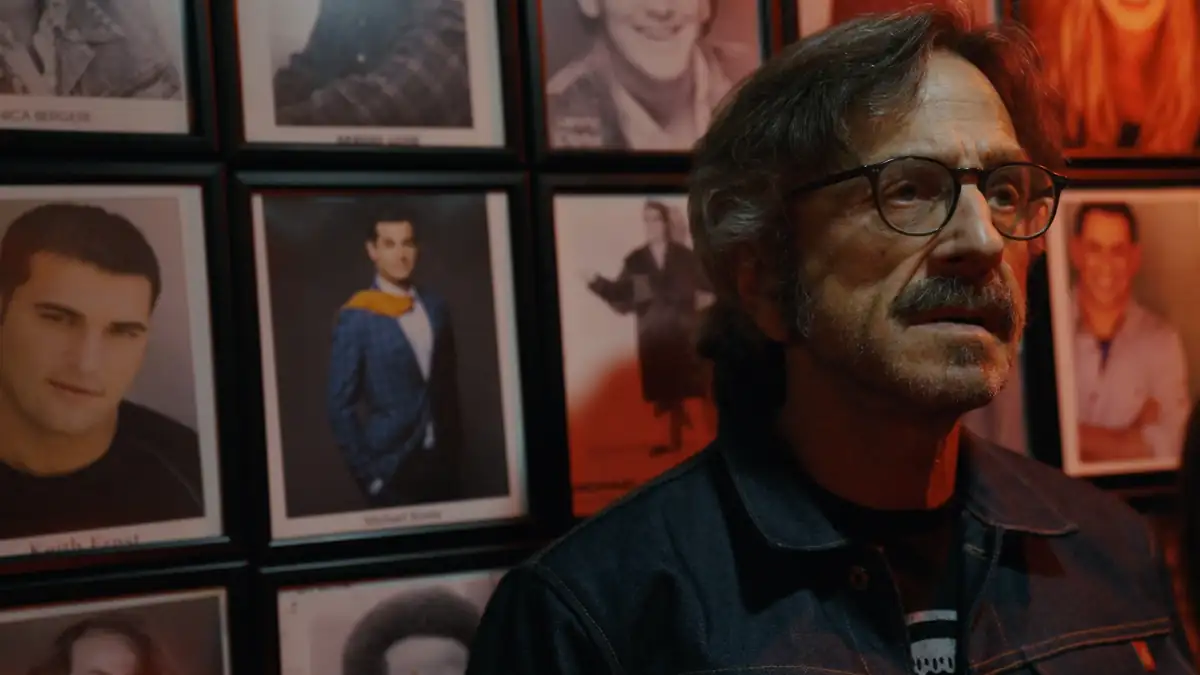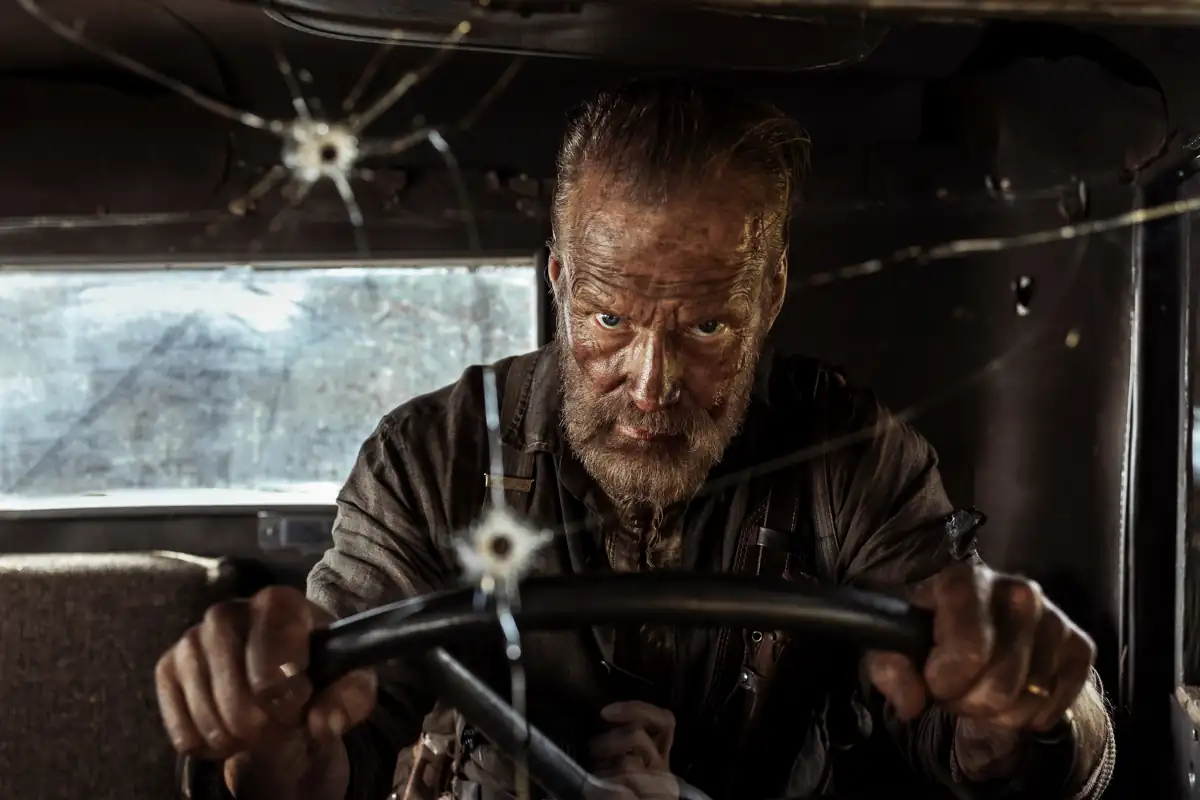I spoke with the cast and crew of Perry Mason, which returns to HBO MAX Nordic on March 7th. During our roundtable talk, we spoke about masking, existing in a compromised society, and how little humanity has changed in a hundred years.
This interview is edited and condensed for clarity.
Where do we find everyone this season?
Chris Chalk: It’s six months later, and what we were promised last season was a partnership – and Paul hasn’t heard anything back from Perry. So he is still broke. He’s given up his old lifestyle. He’s lost and trying to figure out what life for a non-cop black man in the 1930s is like. Because that gave him protection, it gave him power. So there’s this compression as he starts to realize who he really is versus who he performs to be.
Juliet Rylance: At the end of season one, we made all these rules about how we’re going to be, and in season two we start with all of them broken. In the interim, Perry has made these decisions, like not practicing criminal law anymore. So, Della and Paul have no place at the table. It’s a dilemma right away, how do we deal with these decisions? Della tries to create a seat, but Paul is left out.
CC: We never start from a place of trust, so there’s no place to return to. Perry had good intentions, but life does not allow that at all.
Matthew Rhys: Della really comes into her own as she realizes that Perry is in crisis. She takes the weight of everything, and she blooms and flourishes in her own legal right. She takes the floor in court. She was always the legal brain of the group. Perry has his instincts; but she’s the real lawyer here. We really see that emerge even more this season.
As for Perry. When we find him in season 2, he doubts his abilities as a lawyer. Then a second case grabs him because he realizes once again that someone is a victim of railroading. Something he thinks is incredibly wrong. Two guys are accused of murdering a pillar of LA, and it’s an entire institution against them. It throws this curveball at him. He’s struggling with the imposter syndrome of how he became a lawyer, and he has to keep up that façade – that he believes in himself when he doesn’t.
The challenges from season one only feel like they’ve grown as the city expands and the stakes become even bigger.
CC: Well, Paul is still black in America. At a time and place when it was not great to be one. He’s losing his family and his sense of balance. He believes there’s no one he can lean on to help him. Not only that, but he’s faced with a lot of firsts. There’s new stress that comes with that. He had a controlled life before this. Now, post-Perry Mason, he will never know what his day is like. So he’s chasing that continuity of experience again. Every day is new pressure. The season corners us in ways that are more dangerous. We’re messing with institutions, which is a heavier and more dangerous thing to be afraid of than just one person.
JR: The first season set up the world for us to live beautifully. Now, we hone in on these character-driven storylines and the biggest challenge is how we begin to work as a team. We’re not good at it. We have these scenes in the office, and we are lost. How do these three people work?
CC: In the first season, Della and I never said a single word to each other. And nobody noticed that! Which is interesting, in and of itself. So now we’re figuring out how these two people figure each other out.
JR: The challenges are interpersonal, but then there’s, well, Perry. It’s difficult to figure out if Perry can ever work in criminal law again. The pressure of the new case, on top of our distrust, is the biggest challenge for us this time around.
MR: In the beginning, Perry has this moment where he realizes the situation he is in, and he realizes that he shouldn’t be there. He’s not trained for it. It’s not who he is. He has this crisis of faith. He struggles with his simple, linear idea of right and wrong. Now, all the other complexities and gray areas of the judicial system hits him like a freight train.
Visually, the series continues to avoid iconography and Los Angeles feels like it’s still looking for an identity.
Susan Downey: In season one, we tried to explore an LA that wasn’t familiar. The 1930s setting certainly helped. But going into season two, we wanted to expand it. We had done the dark and gritty world, now we wanted to open it into the sunshine world of the haves and the have-nots. Just to expand the palette. The craftsmanship on this show is extraordinary. Be that our production designer or costume designer, all of them bring it to life. The exploration of character allows us to stay away from the familiar.
Michael Begler: The city is so vast that you don’t have to look at the iconography. It’s a city that’s growing constantly. I want to refer to one shot, it’s where Perry and Jenny are on horseback, and they go look at the city. And if you look to the left, you can see the framework of Griffith Observatory. It’s only just being built. It’s just now growing.
It’s almost a hundred years since Perry Mason takes place, but still, sadly, the topics, be they gentrification or corporate corruption, are just as relevant today. Was there a moment you worried about that mirror, and was there ever a moment you started to parse things out when you wrote the season?
MB: For me, the process takes shape organically. Just looking at the time period and seeing what was going on. We had amazing historical consultants. Three in particular. An LA historian, a legal expert, and one who is an expert on the Mexican community in Los Angeles. One of the things we learned was there was this massive amount of deportation of Mexicans – not just immigrants, but people born in this country. We reference that in the series. It was incredible to think about this, how we argue about borders to this day. We didn’t have to force it. It was all there.
SD: We don’t try to do any ‘ripped from the headlines’ stuff, but as you say, humanity doesn’t change that much in a hundred years. We try and tell these stories through our characters. Whether it’s the three leads or the new ones we meet. Whatever their plight, you’ll find parallels to today. We’re very aware of them as the story and case evolve, but we really try to connect them to humanity and the characters, and this is what happens.
I have a theory that Perry is physically and emotionally searching for the bottom, cause that’s the only place he’s got solid ground under his feet. Do you agree, and do you think he’ll ever find it?
MR: I not only agree with it, but I’m also going to steal it, and I’ll start using it in my press. Cause that’s kind of brilliant. I totally agree with it. I think when he’s at rock bottom, as you say, he knows exactly where he is. That’s where he lives best. Cause that’s where he’s lived most of his life. Some extremity of discomfort. That’s why we make the same mistakes. Because when you grow up with something, it’s the only thing you know. There’s a perverse comfort in that. It feeds that dark humor of his. If you are at the bottom, there’s a level of gallows humor you need to survive. It’s very true of Mason.
One of the big repeating themes is masking. For Della and Paul, who have joy and love in their life, it feels like they have to become worse people just to fit into this world. Would that be accurate to say where they are in season two?
JR: That’s an excellent question.
CC: Great question.
JR: Because it’s one of the biggest themes of the story for both of us. How do we isolate ourselves through these secrets and deal with race and gender? We have to make choices that are a complete anathema of who we are.
CC: We invited Perry into our lives, and suddenly we only got awful options on how to behave. Even closer to us, we see how people who do not operate under any ruleset can still benefit. For Paul, that’s a huge struggle to just keep watching people win by being dirtbags. He’s trying to be a good guy, but we’ll see how long that lasts.
JR: It’s such a big thing this season how isolated we all are, even from each other. Where can we not reveal who we really are? What we hide in our real lives. We all deal with that. I just think that Perry often has the easiest time of it.
CC: He’s a white dude! It’s America. He can get away with whatever he wants whenever. He just happens to choose to be justice. But we don’t have that kind of leeway. But in this season, we, a black man and a white woman, find ways to use what we have to get more of what we feel we deserve in this life experience.

